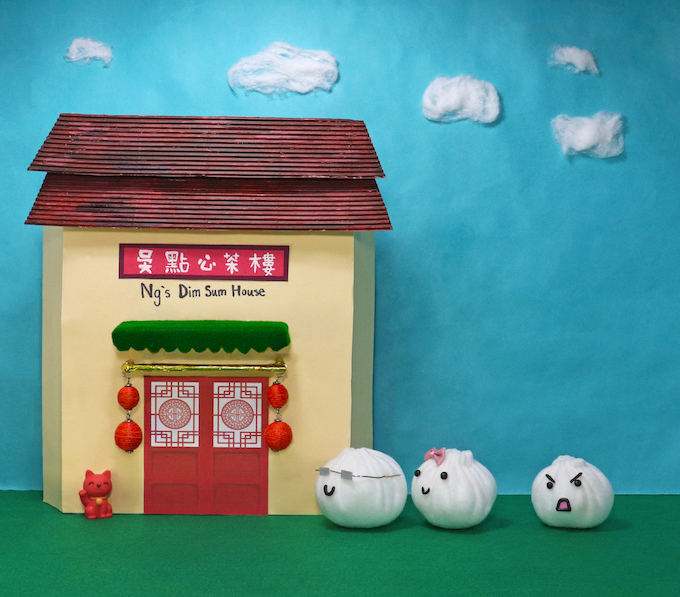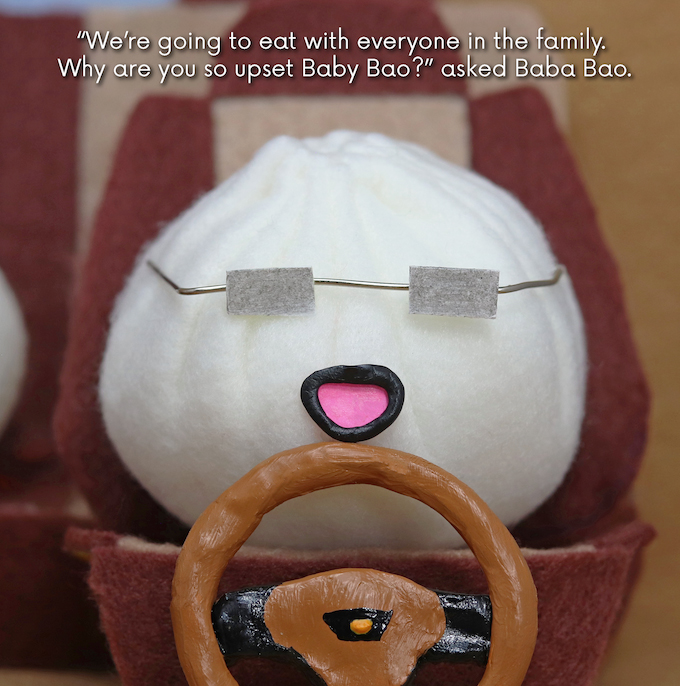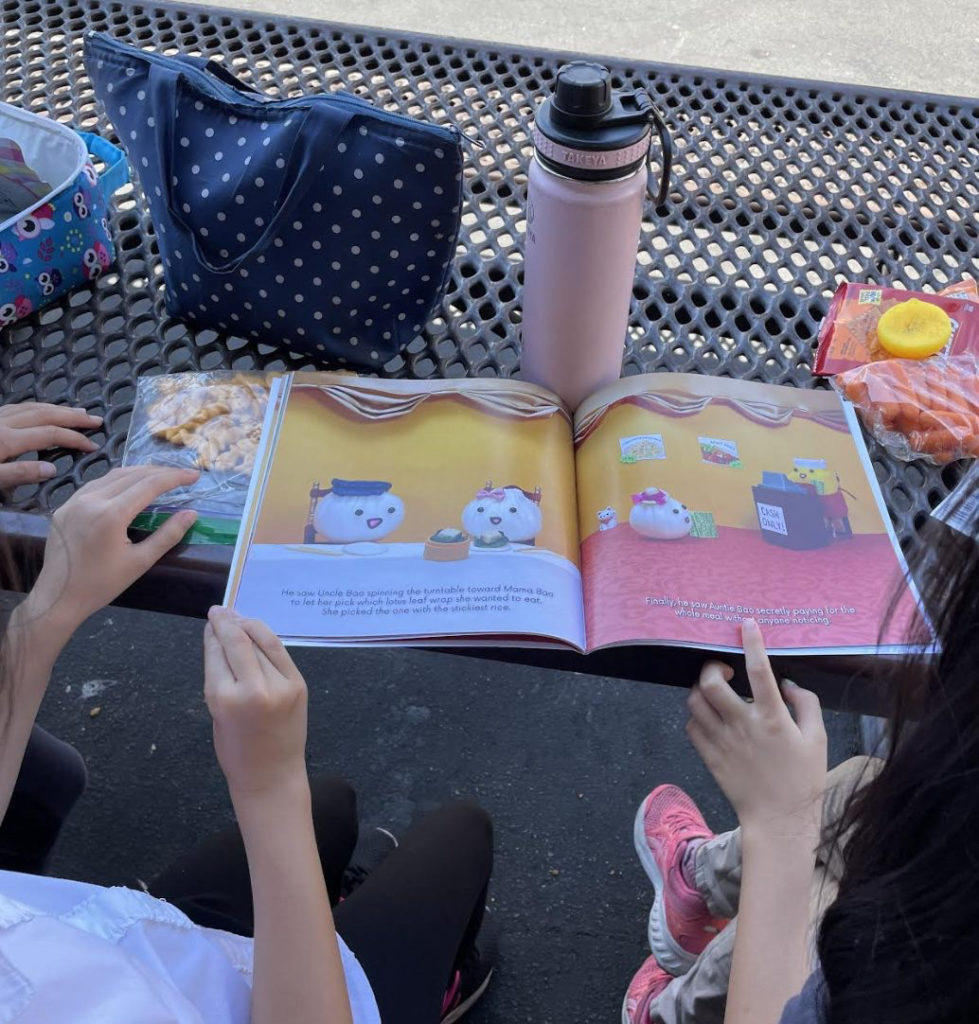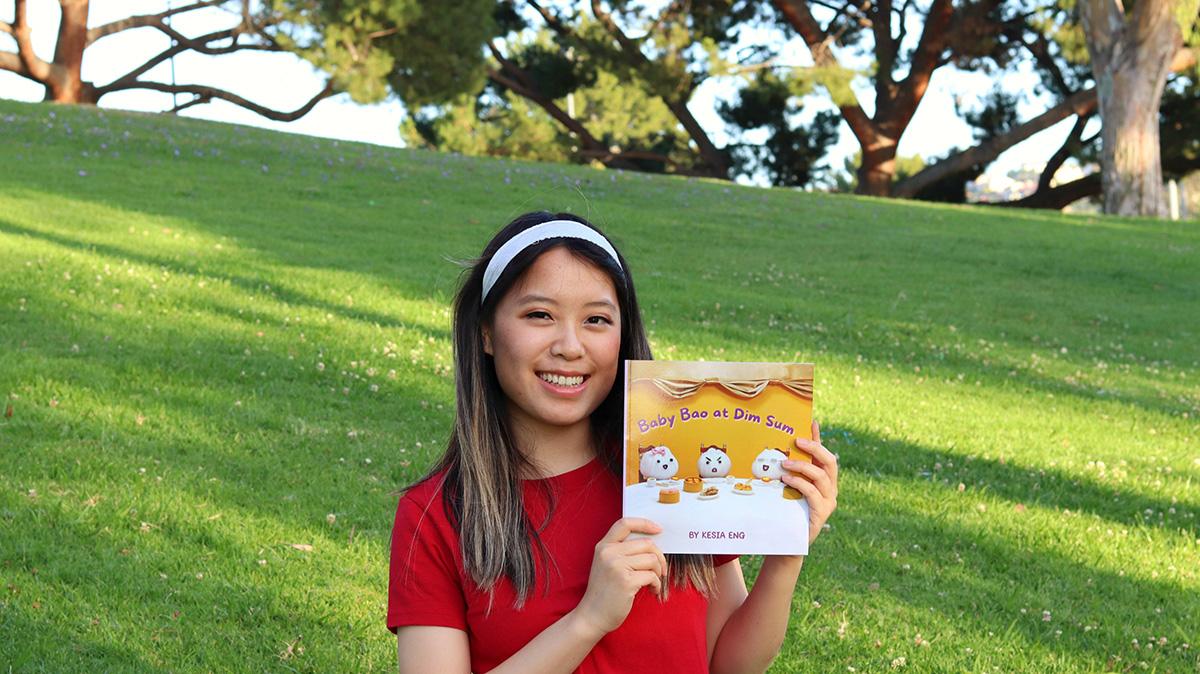UCLA alumnus reflects on nonverbal expressions of love in ‘Baby Bao at Dim Sum’
Kesia Eng holds her self-published children’s book, “Baby Bao at Dim Sum.” The alumnus said her book was inspired by her East Asian upbringing and heritage. (Courtesy of Kesia Eng)
By Megan Cai
Oct. 11, 2022 9:17 p.m.
Kesia Eng is dishing out dim sum with a side of family values.
Earlier this year, the alumnus self-published “Baby Bao at Dim Sum,” a children’s book that chronicles the experiences of growing up in an East Asian household. The story ties in themes of family and selflessness, as the protagonist, Baby Bao, realizes that the meaning behind dim sum is actually about the different ways parents can show love to their children, Eng said.
“I didn’t want younger kids to lose out on that bond with their parents and also the cultural values that are passed down through the meal,” Eng said. “I felt like through dim sum, I learned a lot about my parents and our culture and how they love us selflessly through the acts of just how they pour the tea for the other person.”

Eng said “Baby Bao at Dim Sum” has two purposes: to facilitate bonding between a parent and their child and to educate kids on Asian culture. Coming from an Asian immigrant household, she said she found that her parents often expressed their love through nonverbal means such as food. She added that she believes it is important for Asian children to understand that their parents might express their love in unexpected ways.
[Related: Student-founded Kwento Comics aims for Asian representation in debut graphic novel]
Eng said she hopes the book can educate children on Asian culture by featuring dim sum dishes such as barbecue pork buns, pineapple buns, egg tarts and the less popular chicken feet. Chicken feet were important to include in order to teach children that unfamiliar foods are not necessarily bad, she said.
The concept for the book was originally born out of a desire to teach kids the names of different dim sum dishes, Eng said, but it evolved into a children’s book when she realized she should share this information with her target audience. From there, it took almost two years to publish the book, as she wrote, designed and created the art by herself. Eng said she funded her operations via a fundraising platform called Kickstarter because it allowed for a faster release compared to a traditional publishing method.
“When I want to just do something, I don’t want to wait for someone to give me approval to do it,” Eng said.

To promote her Kickstarter campaign and get feedback for early drafts, Eng said she reached out to one of her co-workers, Andrew Cao. Cao said he was proud to see Eng step out of her comfort zone to complete the book. One way of doing so was creating the art for the book herself instead of outsourcing it, Eng said. She said she learned how to sew to create the bao characters and experimented with cameras and lighting to get the photos she wanted.
Although Eng picked up new skills to make her book, she said she also drew from the knowledge she gained at UCLA. In particular, she credits an introductory screenwriting class she took for helping her to better understand story structure as well as UCLA’s Startup Labs for teaching her how to market her book.
Additional help came from Elton Ho, a longtime friend of Eng and fellow alumnus who previously worked at the Daily Bruin. After reading an outline of the book, Ho said he became interested in its message and offered to help copy edit it. Since the book’s publication, Ho said he has been impressed by the response and Eng’s ability to successfully convey the underlying message of dim sum.
“She was really able to relate why it (dim sum) was so essential (and) why it was such an important element of our heritage growing up in a way that I never put words to, but I understood right away,” Ho said.
[Related: UCLA alumnus promotes representation on BookTok, Bookstagram with ‘vietgirlreads’]
Since its release in the spring, Eng has received positive responses from parents and children alike. She said strangers have messaged her through social media to express their love for “Baby Bao at Dim Sum.” Cao said witnessing the excitement of his friends and their children after receiving the book was his favorite part of his involvement with the book.

Ho said he relates to Baby Bao since, like the protagonist, he did not understand waking up early and going to eat dim sum when he was a kid. Now as an adult, he said he realizes its importance, as these meals created long-lasting memories of his family. For Eng, she said the message is associated with her parents and the importance of children having empathy toward their parents who grew up in a different environment than they did.
“I’m writing myself as Baby Bao in this story because I think a lot of the times, it’s easy for us to be selfish and maybe not consider sometimes what our parents would want or how they love us,” Eng said. “They’re loving you – just not in the ways that you expect them to.”
